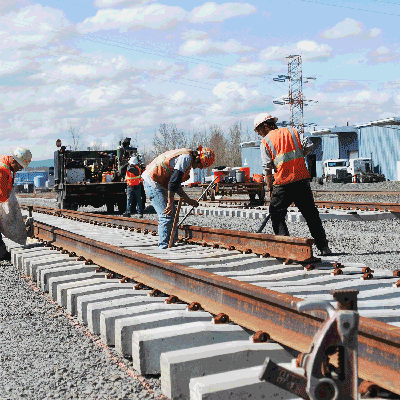The upcoming year holds several major projects for the port of Vancouver. Ten years in the making, the West Vancouver Freight Access project will finish ahead of schedule and under budget. Vancouver Energy is slated to invest $200 million in a crude oil transload facility. And the port is marketing several shovel-ready plots of industrial land.
The West Vancouver Freight Access project was expected in 2017 with a $275 million price tag, but will instead be finished next year and ring in at $50 million under the forecasted budget.
“The project is geared at bringing a new entrance into the port of Vancouver,” explained port CEO Todd Coleman. “There was a lot of congestion and we needed to increase efficiency.”
Businesses across the country are increasing their investments in the port, which has already received hundreds of millions dollars in private investment and expects that much more over the coming years.
“We’re increasing direct access into the port,” said Coleman. “This increases our capacity to handle unit trains so we can more efficiently handle commodities.”
The project has created an additional 40 percent capacity on the mainline and more than 1,000 jobs during the recession. Upwards of 2,000 jobs are expected long-term, as a result of that added capacity.
Also on tap for 2015 is a $200 million dollar investment from Vancouver Energy in a crude oil facility. If approved by the Washington State Energy Facility Site Evaluation Council (EFSEC) and Governor Jay Inslee, the project would bring $45 million a year in revenue for the port and allow further investments in infrastructure aimed at creating new employers and jobs. The proposed multi-service facility would remove crude from trains, temporarily store it and reload it onto ships and barges that would service Washington, California and Alaska.
“Tesoro has a need for 240,000 barrels a day for their refineries, which today is coming from mostly Iraq,” said Coleman. “This [project] replaces the foreign oil with oil right out of North Dakota.”
While concerns about the safety of fossil fuel transport and storage on U.S. soil continues nationwide, port officials said that ensuring safety is their top propriety.
“Some of the things we have done is to work really actively with our federal legislatures and railroads,” said Port Communications Manager Abbi Russell. “We’ve been working proactively to improve the railroads and facilities.”
Other safety regulations that may be implemented are speed limits on crude oil transport through communities, stricter rail car standards and removing gases at wellheads.
How likely is the project to be approved? Coleman is hopeful.
“It makes sense in that it supports U.S. energy independence,” he said. “It’s a shorter destination from the Balken to the U.S. than from international oil sources, and we’d be using all U.S. manufacturers and labor.”
Larger projects like this one would help build infrastructure to accommodate more industrial projects throughout the county, Coleman added.
“As long I’ve been here in Clark Country and at the port we have always been behind in our availability of industrial land and I know that we are missing opportunities every single day,” he said.
But with the anticipated projects this upcoming year, the port is poised to reap the benefits of expanding investments and infrastructure for years to come.
“What I’m most excited about is having properties available so that we can say ‘yes’ to new jobs,” Coleman concluded. “Every one of these jobs includes a salary, which means people will be making local purchases, and that impacts every business that’s already operating throughout this community.”



